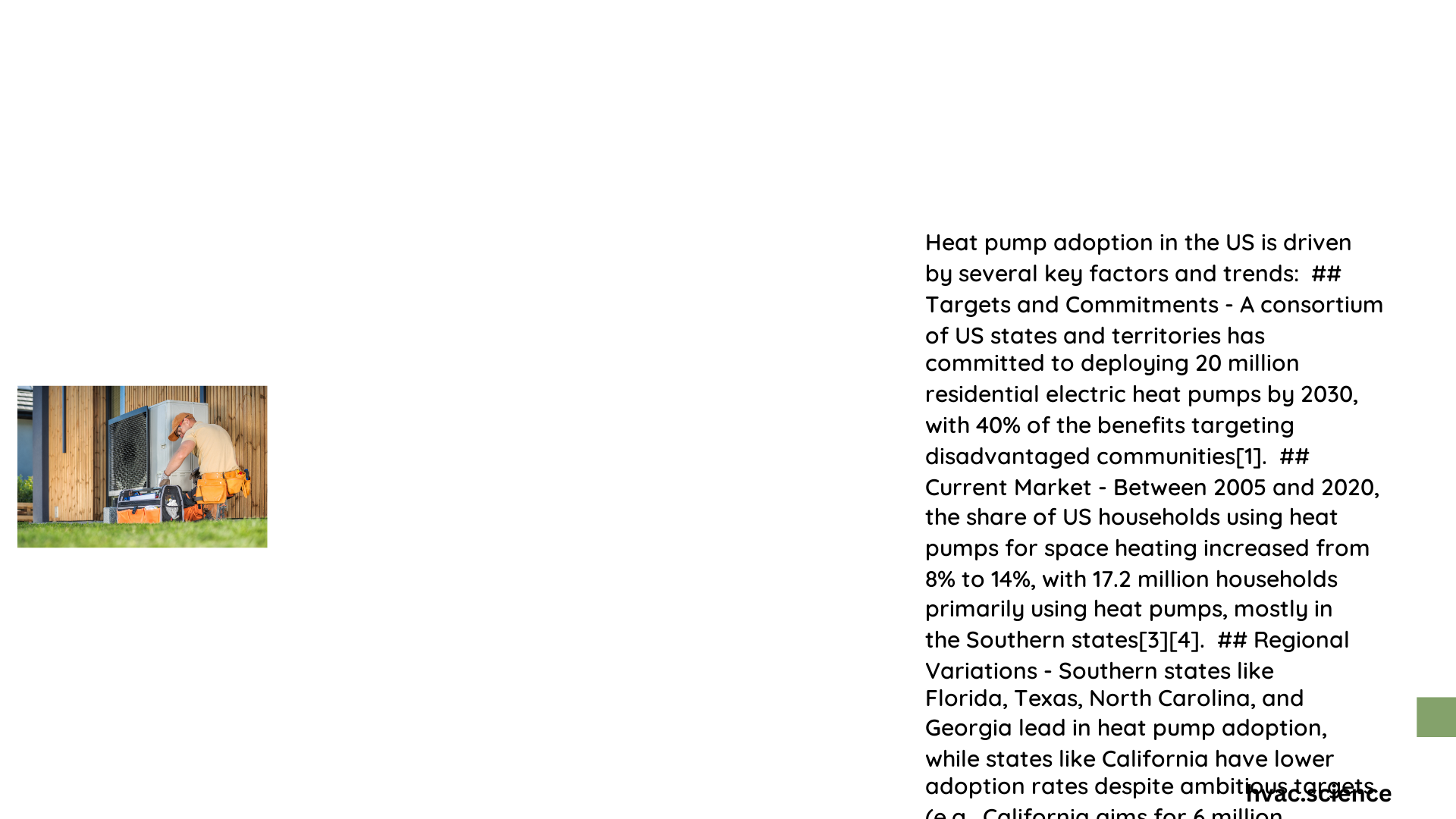Heat pump adoption in the US is experiencing a transformative period, with current statistics revealing 16% of homes using electric heat pumps for space heating. Despite a recent sales decline, the market shows promising long-term growth potential, targeting 100% residential heat pump penetration by 2050. Federal and state incentives, technological advancements, and environmental considerations are driving this complex energy transition.
What Drives Heat Pump Adoption in the US?
Current Market Landscape
The US residential heat pump market presents a nuanced picture of technological transition. As of 2023, heat pumps have demonstrated remarkable market performance:
| Metric | Value |
|---|---|
| Current Home Adoption | 16% |
| Annual Heat Pump Sales | 3,616,632 units |
| Annual Gas Furnace Sales | 2,989,516 units |
| Market Growth Rate | 9.6% CAGR (2024-2032) |
Key Market Dynamics
Heat pump adoption is influenced by multiple interconnected factors:
- Economic Incentives
- 30% federal tax credit (up to $2,000)
- State-specific rebate programs
-
Utility company incentives
-
Environmental Considerations
- Reduced carbon emissions
- Enhanced energy efficiency
-
Alignment with climate goals
-
Technological Advancements
- Improved SEER ratings (13-25)
- Enhanced heating performance
- Smart home integration capabilities
Why Are Consumers Choosing Heat Pumps?
Consumers are increasingly attracted to heat pumps due to:
- Long-term energy cost savings
- Reduced environmental impact
- Dual heating and cooling functionality
- Government and utility incentives
What Challenges Limit Heat Pump Adoption?
Several barriers currently restrict widespread heat pump adoption:
- Higher upfront installation costs
- Regional climate variations
- Limited consumer awareness
- Existing infrastructure dependencies
How Do Installation Costs Impact Adoption?
Heat pump installation costs vary significantly:
- Unit Costs: $2,000 – $7,000
- Labor Expenses: $1,000 – $3,000
- Additional Upgrades: Potential $500 – $5,000
What Are Future Projections?
The heat pump market shows promising growth:
- Market Size 2023: $5.8 billion
- Projected Market Size 2032: $13.4 billion
- Adoption Target: 100% residential penetration by 2050
Strategic Recommendations for Consumers
- Research local and federal incentives
- Evaluate home’s energy efficiency
- Compare long-term cost savings
- Consult energy efficiency professionals
Conclusion

Heat pump adoption in the US represents a critical component of the nation’s energy transformation strategy. While challenges exist, continued technological improvements, economic incentives, and environmental consciousness are driving significant market potential.
